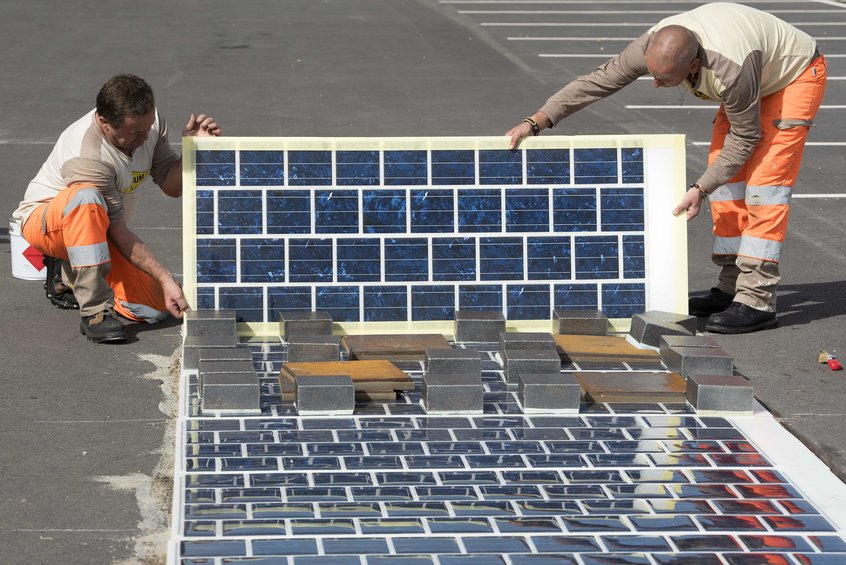France will build a 1000-kilometer road of solar panels

Marie-Ségolène Royal , Minister of Ecology, Sustainable Development and Energy of France, spoke about the government’s plans to build a road paved with solar panels in the next five years. Tenders for a thousand-kilometer canvas have already been placed, and the selection of candidates will begin this April. According to the calculations of power engineers, the energy collected from a kilometer of such a road should be enough for the needs of 5,000 people (excluding heating).
Thousands of kilometers of panels should be enough for the needs of 5 million people, or 8% of the current population of the country. To transform the roadway into solar panels, strips with photocells of 7 mm thickness will be attached to the carriageway.
')
The technology for creating such photocells was developed by Colas Group, a division of the Bouygues industrial group. The creation of the panels, called Wattway, took the company five years.
Wattway cells contain thin polycrystalline silicon film. They are resistant to heavy loads, and must even withstand passing trucks, while, according to the manufacturer, have sufficient friction coefficient so as not to create problems for transport.
The project is proposed to be financed by raising taxes on gasoline, which, according to the Minister of Ecology, will be a natural measure in connection with cheaper oil prices.
In 2014, one of the first roads opened in the Netherlands - however, it is designed only for bicycles. In the USA, a married couple is trying, with the help of public funding, to launch a project to create similar roads for cars.
Bouygues is a French industrial group owned by the billionaire brothers Martin and Oliver Bouygues , who inherited it from their father. Martin is a close friend of Nicolas Sarkozy and the godfather of his son.
Source: https://habr.com/ru/post/371699/
All Articles